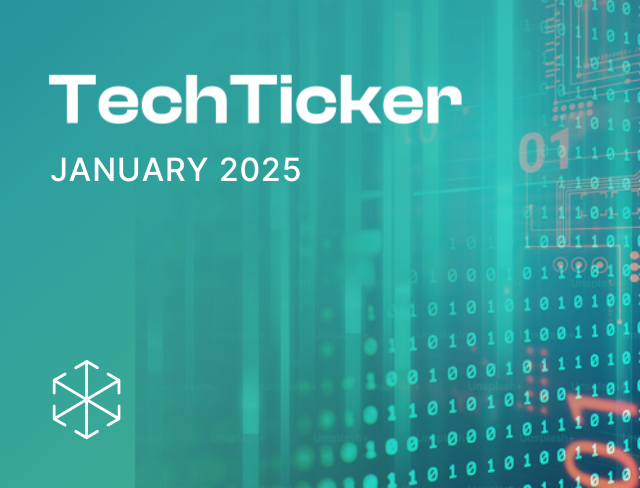Hi all,
The year started with a bang for Ikigai Law. We were awarded ‘Boutique Law Firm of the Year’ at the Asian Legal Business India Law Awards 2020 for the second time in a row, and we are thrilled. Soon after, the Supreme Court declared unconstitutional the Reserve Bank of India’s (“RBI”) circular prohibiting banks and other regulated entities from servicing businesses dealing in virtual currencies. Ikigai Law represented the crypto-currency exchanges in this matter, and it was exhilarating to see two years of labour bear fruit. Read Tanya’s analysis of the judgment, Anirudh and Ratul’s article on what this means for the industry, and a timeline of the litigation to learn more. Further, we represented goStops, a youth hostel chain, and Proeves, day care centre aggregator, raise funds from Atraxn Partners and 1Crowd, respectively. Ila led the creation of a checklist to help companies comply with Abu Dhabi Global Markets Data Protection Regulation 2015; Varun wrote about the national financial inclusion strategy in Nigeria and on the telecommunications industry in post-conflict Libya; Sayanhya analysed information security in co-working spaces as part of our five part series on operating co-working spaces; and Vihang summarised the Union Budget 2020.
Online Content
The debate around regulation of over-the-top video streaming platforms (“OTT Platforms”) had been brewing for a while and some definitive announcements came in February. Prakash Javadekar (India’s information and broadcasting minister) set a 100-day deadline for OTT platforms to set up an adjudicatory body for handling complaints relating to online content and come up with a code of conduct for the industry. Earlier, the Internet and Mobile Association of India, (“IAMAI”) had published an updated self-regulatory code for OTT Platforms. Only Hotstar, Voot, Jio and SonyLIV signed this code, while many others, including Amazon Prime, Netflix, Arre, who were signatories to the earlier code are yet to sign. The significant change introduced by this self-regulatory code was the establishment of the Digital Contents Complaint Council (“DCCC”), a self-regulatory body to deal with user complaints on content. Also, a Rajya Sabha committee submitted its report on the spread of child porn on social media in India to Indian vice president with recommendations which may impact internet intermediary business models. Accordingly, companies may potentially have a nodal authority to report suspicious activity to.
Data governance
Ravi Shankar Prasad (India’s minister for communications, electronics and information technology and law and justice), stated that the Personal Data Protection Bill, 2019 (“PDP Bill 2019”) should go through the widest possible consultation allowed within the parliamentary process. He indicated that the joint parliamentary committee scrutinising the PDP Bill 2019 will complete the consultation process by April-May 2020. He also said that the government may introduce the Bill in Parliament in the monsoon session.
Digital payments
There may be some relief for prepaid payment instrument (“PPI”) providers such as PhonePe, Paytm and Amazon Pay, among others, as news reports indicated that PPI providers may be allowed to let their non-KYC-compliant users switch to the new low KYC PPI wallet introduced in December 2019. This is a boon for PPI providers whose customers’ accounts were declared retrospectively non-KYC-compliant after the 2018 Aadhaar judgement of the Supreme Court of India. Sources state that the cost of in-person KYC would have been between INR 200-300 per person, creating an overall burden of INR 2,500 crores for Paytm alone. However, we are waiting for a formal announcement of the same from the RBI. Also, the RBI released its sixth bi-monthly monetary policy statement for 2019-2020. Along with this, it released its ‘Statement on Developmental and Regulatory Policies’ (“Statement”) which lays out the various policy measures taken by the RBI to develop a better ecosystem for payment and settlement systems. The Statement included the creation of a self-regulatory organisation (“SRO”) for the Indian digital payments ecosystem. The RBI also sought comments on a ‘draft framework for the authorization of a pan-India New Umbrella Entity (“NUE”) for retail payment systems. The proposed creation of the SRO and NUE along with some earlier actions, indicate the beginning of RBI’s participation in regulating digital payments in India. Some believe that this may have been informed by the growing number of frauds in the digital payments’ space on account of lower government oversight, however, there may be other reasons behind this as well.
Intermediary liability
The government may further delay the release of the draft Intermediary Guidelines (“Draft Guidelines”) after the law ministry voiced concerns about their compatibility with the PDP Bill 2019. This is despite the government informing the Supreme Court in October 2019 that it is likely to notify the amended guidelines by 15 January 2020. In a shift from earlier reports, which stated that a significant burden of the Draft Guidelines would only be borne by social media companies and not all intermediaries, i.e. cloud services providers and e-commerce websites, the law ministry reportedly seeks to apply the guidelines to all intermediaries regardless to their nature of functioning. The ministry did, however, support a distinction between ‘active’ social-media sites and ‘non-active’ sites. The government may also include a new clause in the Draft Guidelines which would make platforms liable for non-user generated content.
Others
The Indian ministry of external affairs organized the three-day Asia Economic Dialogue, themed ‘Asia and the Emerging International Trading System’ in Pune, Maharashtra between 28 February and 01 March, 2020. Panels at the conference explored the growing importance of Asian countries in global economic order, focusing particularly on the overlap of technology and trade. Key themes discussed were need to develop ‘pole-vaulting’ technologies, divergence created by the ‘Chinese’ model and ‘western’ model of governance of international trade and tech, telecom infrastructure, and the internationalization of Indian technology products.
We will come back to you with more in April!










